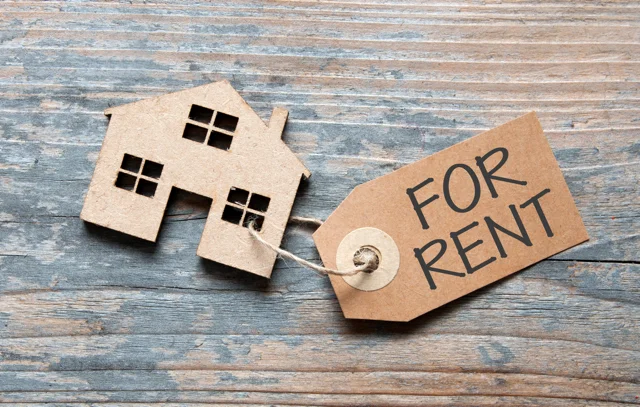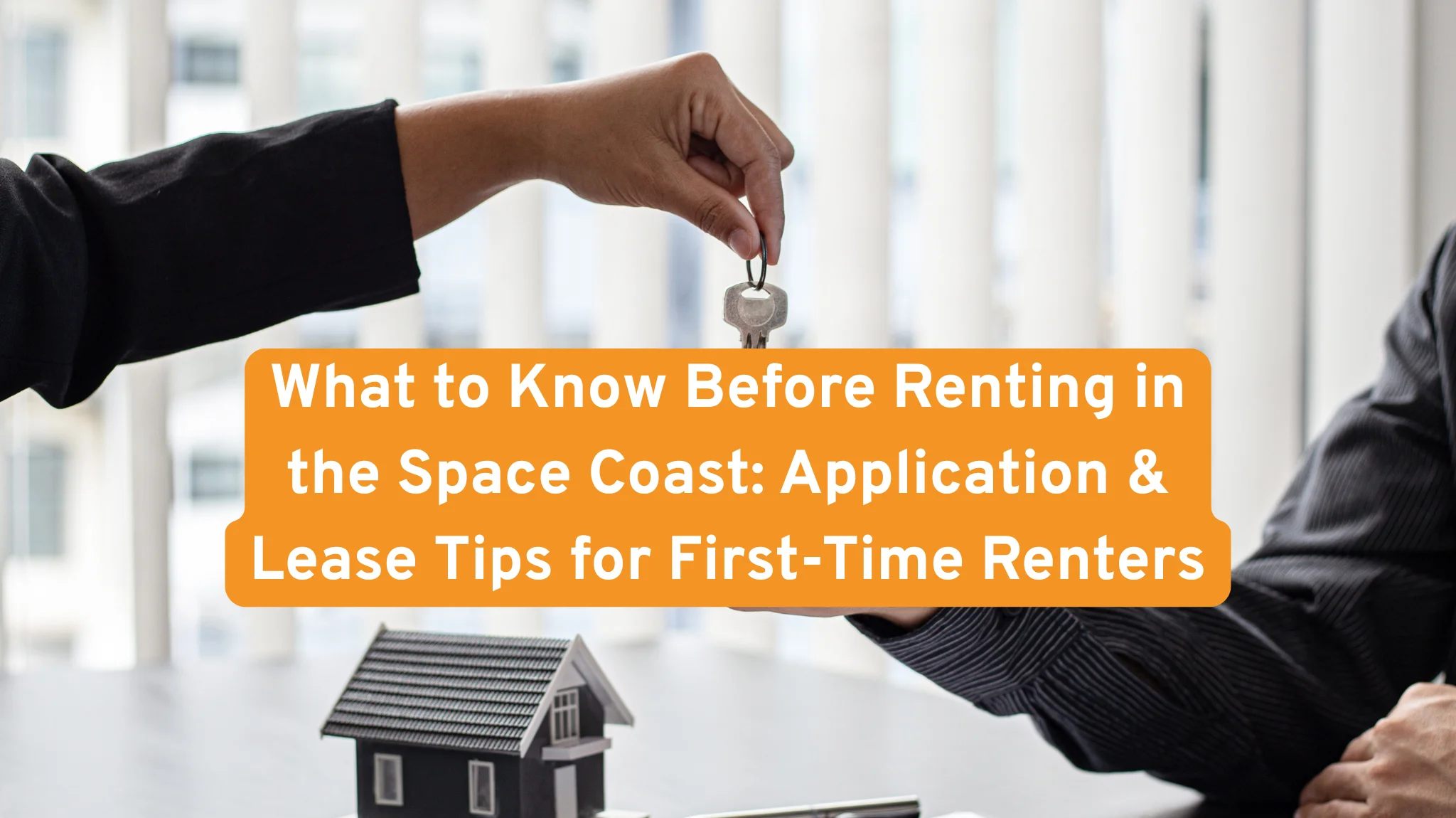Our Expert Tips For Renting in the Space Coast
Renting for the first time in Florida’s Space Coast can be exciting, but it also comes with challenges. The region offers beautiful beaches, a growing job market, and vibrant communities—but navigating the rental market requires preparation.
Understanding lease terms is crucial. It helps avoid surprises later. Knowing your tenant rights in Florida is equally important. It protects you legally. The rental application process can be competitive. Having a checklist ensures you’re ready. It speeds up approval.Price negotiation can save you money. Researching market rates is key. It gives you leverage.
Roommate agreements are vital for shared living. They prevent conflicts. Clear terms make cohabitation smoother. Property management services can simplify renting. They handle maintenance and repairs. This can be a big relief.
This guide will provide first-time renter advice. It covers everything you need to know. Let’s dive in!

Understanding Tenant Rights in Florida
Before signing a lease in the Space Coast, it's important to understand your rights as a tenant. Tenant rights ensure that both tenants and landlords follow fair practices. Knowing these rights can save you from potential issues.
Florida has specific laws to protect renters. These laws cover various aspects like deposits, repairs, and privacy. As a renter, being informed empowers you to handle disputes effectively.
It's crucial to know what landlords are obligated to do. They must provide a safe and livable environment. Additionally, certain procedures must be followed in the case of eviction.
To avoid misunderstandings, familiarize yourself with common tenant rights in Florida. These include privacy rights, conditions for lease termination, and rules regarding landlord entry into your home. Understanding these aspects ensures a better renting experience.
Here's a brief list of basic tenant rights:
- Right to privacy
- Right to a safe and habitable environment
- Protection against unfair eviction
Overview of Tenant Rights
Tenant rights provide a safety net for renters. They ensure fair treatment in landlord-tenant relationships. Privacy is one core right renters enjoy. Landlords cannot enter your space without notice.
Florida law requires property to be safe. This means a home should meet basic living conditions. If repairs are needed, landlords must address them in a timely manner. This helps maintain a good living environment.
Here's a quick list summarizing important rights:
- Privacy protection for renters
- Right to prompt repairs
- Living condition requirements for landlords
Key Laws for Renters
Florida's rental laws offer specific protections. These laws are designed to make sure both parties adhere to fair practices. Understanding these regulations can prevent conflicts and misunderstandings.
The Florida Residential Landlord and Tenant Act is a key statute. It outlines responsibilities for both landlords and tenants. Renters should be familiar with this law as it covers many aspects of the rental agreement.
Key laws include:
- The Florida Residential Landlord and Tenant Act
- Security deposit regulations
- Eviction procedures
Knowing these laws provides a solid foundation. It equips you to handle any issues that might arise during your tenancy. Always be sure to consult official resources or seek legal advice when needed.
The Rental Application Process
Navigating the rental application process can be daunting, especially for first-time renters. Preparation is key to a smooth experience. Start by gathering all necessary documents and information.
A thorough rental application often includes your personal details and employment information. Landlords may also request references. Ensure your application stands out by being complete and accurate.
It's important to understand the common steps involved. These usually start with submitting a detailed application form. Then, a background and credit check typically follows. Be ready to provide additional documents if necessary.
Applicants are usually required to pay application fees. These cover the cost of screening checks. Always inquire about these fees upfront. They are generally non-refundable.
To increase your chances, double-check all details. Ensure there are no errors in your form. This demonstrates your attention to detail, a quality landlords appreciate.
Here's a simplified order of steps in the application process:
- Submit completed application form
- Undergo background and credit checks
- Provide necessary documents and references
- Pay the required application fees

Rental Application Checklist
Having a rental application checklist helps ensure you provide everything needed. This checklist keeps you organized and prepared.
First, gather your documents. Include a valid ID and proof of income. Previous landlord references can strengthen your application.
You can follow this checklist to guide your preparation:
- Valid ID
- Proof of income
- References from past landlords
- Current employment details
Having these ready saves time. It demonstrates you're serious and organized.
Common Requirements and Fees
Being aware of common requirements helps avoid surprises. Most landlords need specific information to process applications. Providing these promptly eases the process.
Typically, you should offer proof of income. This assures landlords of your ability to pay rent. Additionally, expect to submit personal references.
Common requirements often include:
- Proof of income or employment
- Personal and professional references
- Credit score information
Regarding fees, be prepared to cover the cost of checks. These application fees are standard. Confirm what these will cover and their amount beforehand.
Application Approval Timeline
Understanding the approval timeline helps manage your expectations. Once submitted, applications usually take a few days to process.
Typically, the timeline includes these steps:
- Initial review of your application
- Completion of background and credit checks
- Final decision and notification
Knowing this helps reduce stress. Await communication from landlords patiently, as each has their own timeline. Stay proactive by maintaining open communication.
Lease Terms Explained
Understanding your lease terms is crucial before signing. These terms define your living conditions and responsibilities. Familiarize yourself with them to avoid misunderstandings.
A lease is a binding contract, so it's important to know what you're agreeing to. Read all sections carefully. If any terms seem unclear, ask for explanations.
Key elements often include the lease length, payment terms, and renewal clauses. It's beneficial to have a clear understanding of each aspect. Being informed helps avoid conflicts later.
Look for these critical sections in your lease:
- Length of the lease
- Rent amount and payment schedule
- Security deposit and other fees
- Renewal and termination clauses
Carefully review penalty clauses and other fees. Leases can also include maintenance duties and restrictions. Knowing these ahead can help prevent issues.

Length of Lease and Renewal Clauses
The lease duration is a major factor in your agreement. Leases typically range from six months to a year. Choose a timeframe that fits your needs.
Understanding the renewal process is equally important. Some leases automatically renew, while others require new agreements. Awareness of these details aids in planning your stay.
Important points in this context are:
- Length of the initial lease period
- Conditions for renewal or termination
- Notice period for renewal
Discuss any uncertainties with your landlord or property manager. Clear communication ensures smooth renewals or departures.
Rent Payment Terms
Understanding rent payment terms is essential for managing finances. Know when your rent is due and acceptable payment methods. This prevents late fees.
Terms also specify the grace period and penalties for late payments. Being aware of these prevents unexpected costs and maintains a good record.
Focus on these terms:
- Monthly rent amount
- Accepted payment methods (e.g., bank transfer)
- Due date and grace period
- Penalties for late payment
Discuss concerns with your landlord, ensuring clarity and avoiding future disputes.
Security Deposits and Fees
Security deposits are a common requirement and are refundable. Understanding conditions for its return is vital. They protect landlords against damages and unpaid rent.
Be aware of all associated fees. Leases may include cleaning, pet, or administrative fees. Knowing these upfront helps with budgeting.
Key considerations include:
- Amount and purpose of the security deposit
- Conditions for deposit return
- Additional fees (e.g., pet fees, administrative fees)
Clarify any uncertainties before signing. This ensures a transparent rental experience and prevents future conflicts.
Price Negotiation Tips
Negotiating your rent can be intimidating, but it's often worth trying. Many landlords are open to discussing terms, especially if you're a desirable tenant. Doing so could save you money monthly and improve your rental experience.
Start by preparing your argument. Highlight your strengths, such as a good credit score or stable income. Being a respectful and reliable tenant can be a valuable asset.
Effective negotiation involves strategy. Be clear about your needs and willing to compromise. Flexibility can lead to a mutually beneficial agreement.
Key strategies include:
- Highlighting your reliable rental history
- Offering to sign a longer lease for better terms
- Presenting solid references from previous landlords
Aim for a win-win situation rather than pushing too hard. This approach fosters long-term goodwill with your landlord.
Researching Market Rates
Knowing the market rates is vital before negotiating rent. Understanding local trends gives you a solid foundation for discussions. Find out the average prices in your desired area.
Use online platforms and rental listings to compare similar properties. This data helps you present a fair argument to the landlord.
Essential resources include:
- Real estate websites and rental apps
- Local housing market reports
- Social media and community forums
Being informed helps in pitching a reasonable offer, increasing your chances for a successful negotiation.
How to Approach Negotiation
Approaching negotiation with confidence is crucial. Start by being respectful and understanding your landlord's perspective. Clearly express your desired changes without appearing confrontational.
Present well-researched data to support your requests. Be willing to meet halfway to reach a compromise that satisfies both parties.
Consider these tactics:
- Opening with factual data about market rates
- Suggesting potential compromises, like a longer lease
- Communicating your appreciation for the property and lease terms
Remaining polite and professional can make negotiations smoother, building a positive relationship with your landlord.
Roommate Agreements
Living with roommates can offer great financial benefits, but it requires careful planning. Establishing a clear roommate agreement is crucial to ensure harmony. A written contract helps prevent misunderstandings about shared responsibilities and expectations.
A well-crafted agreement can cover rent division, utilities, and household chores. It's vital to discuss these aspects upfront, reducing the risk of future disagreements. This proactive approach can lead to a more pleasant living arrangement for everyone involved.
Consider setting specific rules for shared spaces and guest policies. Agreeing on how to handle conflicts can also be beneficial. Crafting an agreement encourages open communication and accountability.
Essentials to consider include:
- Division of rent and bills
- Chore schedules and shared responsibilities
- Guest and pet policies
Importance of Written Agreements
A written roommate agreement serves as a vital reference. It formalizes expectations, providing clarity on arrangements. This reduces potential conflicts by offering concrete terms agreed upon by all roommates.
It's essential to include:
- Signatures from all roommates
- Specific details for financial responsibilities
A written contract fosters transparency and mutual respect in shared living situations.

Key Terms to Include
Include critical terms in your roommate agreement for comprehensive coverage. Ensure clarity in financial arrangements, cleaning duties, and other shared tasks. Doing so protects everyone's interests and encourages a peaceful environment.
Important terms comprise:
- Rent and utility payment schedules
- Defined chore duties and timelines
These elements in an agreement help maintain order and peace among roommates.
Ready to Rent in the Space Coast?
At Osto Property Management, we simplify the rental process—from application to move-in. Whether you’re a first-time renter or a homeowner seeking professional management, our team is here to help.
FAQs for First-Time Renters in the Space Coast
1. What documents are needed to rent in Florida?
Most landlords in the Space Coast require a valid photo ID, proof of income, employment details, and references from past landlords.
2. How much is a typical security deposit in the Space Coast?
Security deposits are usually equal to one month’s rent but may be higher if you have pets or lower credit scores.
3. How long does the rental application process take?
Applications typically take 2–5 business days, depending on the speed of background and credit checks.
4. Can rent be negotiated in the Space Coast?
Yes, many landlords are open to negotiation if you have a strong rental history, good credit, or agree to a longer lease.
5. What are my rights as a tenant in Florida?
Florida tenants have the right to privacy, a safe and habitable property, and protection from unfair eviction. Landlords must provide notice before entering your unit.


